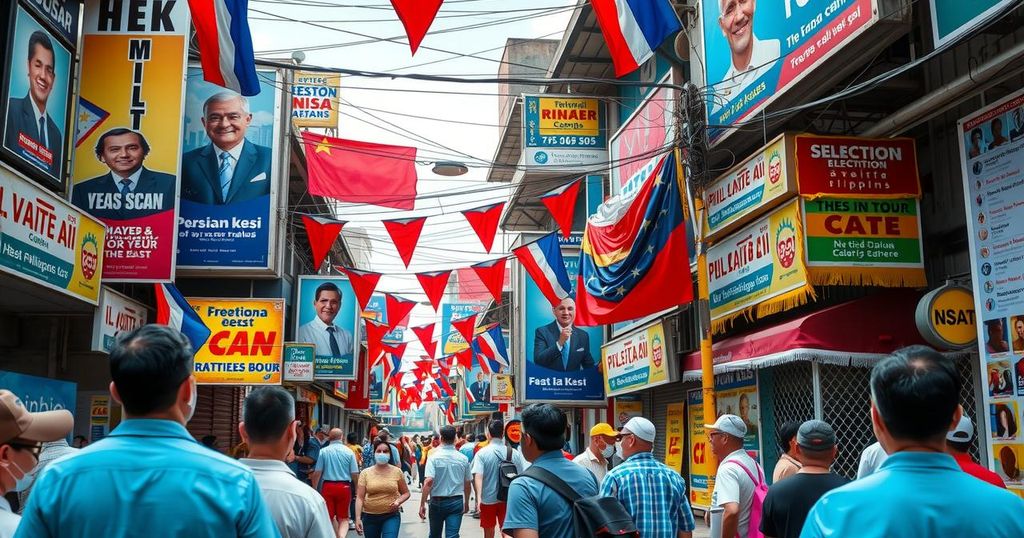World news
AFRICA, BRUNO MARS, CANADA, CNMI, CYNTHIA BLOCK, ELECTION, GOVERNANCE, GOVERNMENT, MAXIME BERNIER, NORTH AMERICA, PARLIAMENTARY SEATS, PEOPLE ' S PARTY OF CANADA, PRESIDENTIAL CANDIDATES, ROSE, SASKATCHEWAN NDP, SASKATCHEWAN PARTY, SASKATOON, SASKATOON INN & CONFERENCE CENTRE, SUDAN, U. S
Marcus Chen
0 Comments
Contrasting Electoral Experiences: Canada and the Philippines
This article contrasts the electoral practices in Canada and the Philippines through a personal lens, highlighting differences in campaign styles, electoral dynamics, and the challenges faced by voters in both nations. While Canada shows a more restrained approach, the Philippines experiences chaotic election campaigns heavily influenced by familial politics and corruption. The author expresses a hope for change, emphasizing the need for genuine representation and marginalized voices to be heard in the Filipino political landscape.
SASKATOON — As the dust settles on Canada’s recent elections, I find myself reflecting on the stark contrasts between electoral practices in Canada and the Philippines. Having covered both federal and provincial elections, including the saga of the Saskatchewan Party’s remarkable fifth straight victory last October, it is evident how unique our political landscapes are. Additionally, the recent city elections have brought forth notable milestones, such as Cynthia Block being elected as the first female mayor of Saskatoon.
In Saskatoon, my experience over nearly six years has shown me how elections here are marked by restraint. Campaigns are quiet affairs, characterized predominantly by simple lawn signs, posters, and flyers distributed in mailboxes. These low-key tactics sharply contrast with the energetic and sometimes chaotic atmosphere I observed back home in the Philippines, particularly during this characterized campaigning period.
During my recent trip to Manila, the scorching weather was just one aspect of the bustling campaign scene. It was a groundswell of activity, but interpreting it through a political lens reveals a more complex picture. Heavy jingles greeted the dawn, and placards plastered everywhere ushered in a special kind of noise—somewhat overwhelming. In rural areas, the landscape is dotted with violence and corruption, where rivalries can lead to deadly consequences, morphing the electoral battle into something much more sinister.
Promises, typically focused on being pro-poor, always seem to echo through these campaigns. Some officials genuinely strive to uplift the marginalized, while others exploit their positions for personal gain. Unfortunately, many candidates hail from long-standing political dynasties, effectively turning governance into a family business. A prime example comes from Las Piñas, with cousins from a powerful clan competition in the upcoming elections — a testament to how entrenched familial politics are in the fabric of governance.
Hopes for change at the Senate level reveal the deep flaws within the political fabric of the Philippines. Though a few credible new candidates are present, many on the ballot stem from entertainment circles or lack the integrity typically expected of legislative leaders. An alarming fact is that some unsavory characters, like Pastor Apollo Quiboloy, attempt to secure political office despite serious legal allegations.
Civic engagement appears stunted in many citizens, particularly the poorest, who seem to prioritize entertainment over educated voting choices. Campaign rallies often feature candidates performing catchy dances, sidelining genuine electoral discourse. The long history of patronage politics and the notion of utang na loob, or indebtedness, serve as tools to keep voters beholden to incumbents and their dynasties.
During my short stint back in my hometown, it was disheartening to see the same struggles faced by those I grew up with—people still trapped in relentless cycles of poverty and dependence on political favors. I hope for more meaningful representation in the Philippine government. Citizens deserve voices that truly resonate with their needs, and above all, a commitment from leaders that transcends self-interest. Better wages and universal access to quality education should not be mere aspirations. I long for a system built on transparency and accountability, where taxpayer money is channeled towards uplifting the populace instead of inflating the wealth of a select few.
Both Canada and the Philippines present unique landscapes of democracy, showcasing stark contrasts in electoral processes and campaigning styles. While Canada promotes restrained, issue-focused elections, the Philippines grapples with chaotic political dynasties and a lack of voter awareness. The hope remains that one day, the marginalized voices in the Philippines will find true representation and their basic needs met. Voters deserve systems that foster accountability, transparency, and genuine progress, reflecting the enduring aspirations of all citizens.
Original Source: www.sasktoday.ca




Post Comment